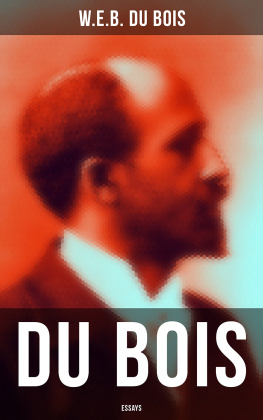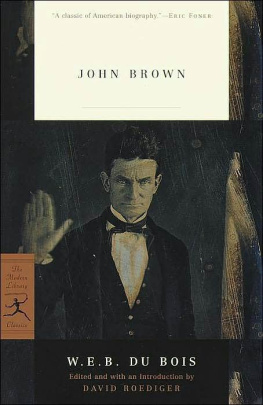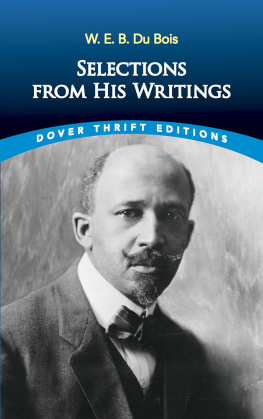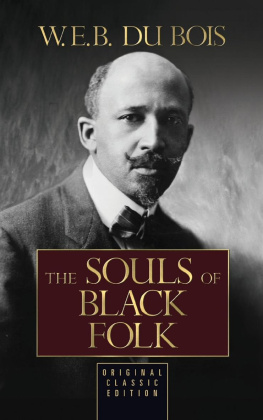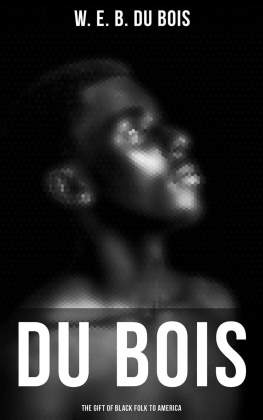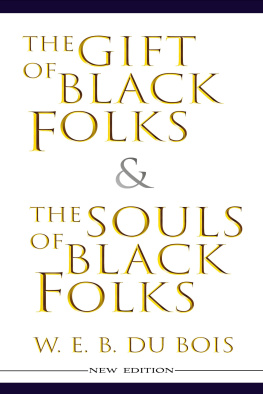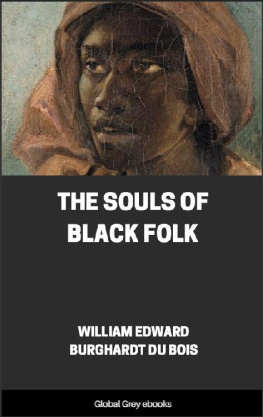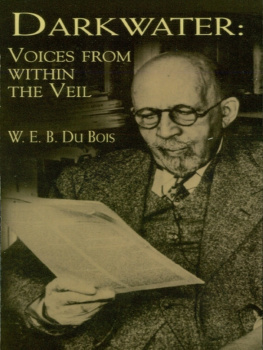Reading suggestions
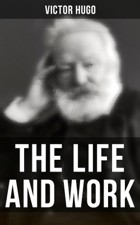 | Victor Hugo:
The Life and Work of Victor Hugo |
 | W.E.B. Du Bois:
The Collected Works of Du Bois |
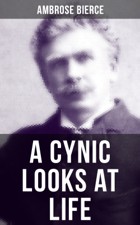 | Ambrose Bierce:
A CYNIC LOOKS AT LIFE |
A Negro Schoolmaster in the New South
Once upon a time I taught school in the hills of Tennessee, where the broad dark vale of the Mississippi begins to roll and crumple to greet the Alleghanies. I was a Fisk student then, and all Fisk men think that Tennesseebeyond the Veilis theirs alone, and in vacation time they sally forth in lusty bands to meet the county school commissioners. Young and happy, I too went, and I shall not soon forget that summer, ten years ago.
First, there was a teachers' Institute at the county-seat; and there distinguished guests of the superintendent taught the teachers fractions and spelling and other mysteries,white teachers in the morning, Negroes at night. A picnic now and then, and a supper, and the rough world was softened by laughter and song. I remember howBut I wander.
There came a day when all the teachers left the Institute, and began the hunt for schools. I learn from hearsay (for my mother was mortally afraid of firearms) that the hunting of ducks and bears and men is wonderfully interesting, but I am sure that the man who has never hunted a country school has something to learn of the pleasures of the chase. I see now the white, hot roads lazily rise and fall and wind before me under the burning July sun; I feel the deep weariness of heart and limb, as ten, eight, six miles stretch relentlessly ahead; I feel my heart sink heavily as I hear again and again, "Got a teacher? Yes." So I walked on and on,horses were too expensive,until I had wandered beyond railways, beyond stage lines, to a land of "varmints" and rattlesnakes, where the coming of a stranger was an event, and men lived and died in the shadow of one blue hill.
Sprinkled over hill and dale lay cabins and farmhouses, shut out from the world by the forests and the rolling hills toward the east. There I found at last a little school. Josie told me of it; she was a thin, homely girl of twenty, with a dark brown face and thick, hard hair. I had crossed the stream at Watertown, and rested under the great willows; then I had gone to the little cabin in the lot where Josie was resting on her way to town. The gaunt farmer made me welcome, and Josie, hearing my errand, told me anxiously that they wanted a school over the hill; that but once since the war had a teacher been there; that she herself longed to learn,and thus she ran on, talking fast and loud, with much earnestness and energy.
Next morning I crossed the tall round hill, lingered to look at the blue and yellow mountains stretching toward the Carolinas; then I plunged into the wood, and came out at Josie's home. It was a dull frame cottage with four rooms, perched just below the brow of the hill, amid peach trees. The father was a quiet, simple soul, calmly ignorant, with no touch of vulgarity. The mother was different,strong, bustling, and energetic, with a quick, restless tongue, and an ambition to live "like folks." There was a crowd of children. Two boys had gone away. There remained two growing girls; a shy midget of eight; John, tall, awkward, and eighteen; Jim, younger, quicker, and better looking; and two babies of indefinite age. Then there was Josie herself. She seemed to be the centre of the family: always busy at service or at home, or berry-picking; a little nervous and inclined to scold, like her mother, yet faithful, too, like her father. She had about her a certain fineness, the shadow of an unconscious moral heroism that would willingly give all of life to make life broader, deeper, and fuller for her and hers. I saw much of this family afterward, and grew to love them for their honest efforts to be decent and comfortable, and for their knowledge of their own ignorance. There was with them no affectation. The mother would scold the father for being so "easy;" Josie would roundly rate the boys for carelessness; and all knew that it was a hard thing to dig a living out of a rocky side hill.
I secured the school. I remember the day I rode horseback out to the commissioner's house, with a pleasant young white fellow, who wanted the white school. The road ran down the bed of a stream; the sun laughed and the water jingled, and we rode on. "Come in," said the commissioner,"come in. Have a seat. Yes, that certificate will do. Stay to dinner. What do you want a month?" Oh, thought I, this is lucky; but even then fell the awful shadow of the Veil, for they ate first, then Ialone.
The schoolhouse was a log hut, where Colonel Wheeler used to shelter his corn. It sat in a lot behind a rail fence and thorn bushes, near the sweetest of springs. There was an entrance where a door once was, and within, a massive rickety fireplace; great chinks between the logs served as windows. Furniture was scarce. A pale blackboard crouched in the corner. My desk was made of three boards, reinforced at critical points, and my chair, borrowed from the landlady, had to be returned every night. Seats for the children,these puzzled me much. I was haunted by a New England vision of neat little desks and chairs, but, alas, the reality was rough plank benches without backs, and at times without legs. They had the one virtue of making naps dangerous, possibly fatal, for the floor was not to be trusted.
It was a hot morning late in July when the school opened. I trembled when I heard the patter of little feet down the dusty road, and saw the growing row of dark solemn faces and bright eager eyes facing me. First came Josie and her brothers and sisters. The longing to know, to be a student in the great school at Nashville, hovered like a star above this child woman amid her work and worry, and she studied doggedly. There were the Dowells from their farm over toward Alexandria: Fanny, with her smooth black face and wondering eyes; Martha, brown and dull; the pretty girl wife of a brother, and the younger brood. There were the Burkes, two brown and yellow lads, and a tiny haughty-eyed girl. Fat Reuben's little chubby girl came, with golden face and old gold hair, faithful and solemn. 'Thenie was on hand early,a jolly, ugly, good-hearted girl, who slyly dipped snuff and looked after her little bow-legged brother. When her mother could spare her, 'Tildy came,a midnight beauty, with starry eyes and tapering limbs; and her brother, correspondingly homely. And then the big boys: the hulking Lawrences; the lazy Neills, unfathered sons of mother and daughter; Hickman, with a stoop in his shoulders; and the rest.
There they sat, nearly thirty of them, on the rough benches, their faces shading from a pale cream to a deep brown, the little feet bare and swinging, the eyes full of expectation, with here and there a twinkle of mischief, and the hands grasping Webster's blue-back spelling-book. I loved my school, and the fine faith the children had in the wisdom of their teacher was truly marvelous. We read and spelled together, wrote a little, picked flowers, sang, and listened to stories of the world beyond the hill. At times the school would dwindle away, and I would start out. I would visit Mun Eddings, who lived in two very dirty rooms, and ask why little Lugene, whose flaming face seemed ever ablaze with the dark red hair uncombed, was absent all last week, or why I missed so often the inimitable rags of Mack and Ed. Then the father, who worked Colonel Wheeler's farm on shares, would tell me how the crops needed the boys; and the thin, slovenly mother, whose face was pretty when washed, assured me that Lugene must mind the baby. "But we'll start them again next week." When the Lawrences stopped, I knew that the doubts of the old folks about book-learning had conquered again, and so, toiling up the hill, and getting as far into the cabin as possible, I put Cicero pro Archia Poeta into the simplest English with local applications, and usually convinced themfor a week or so.

